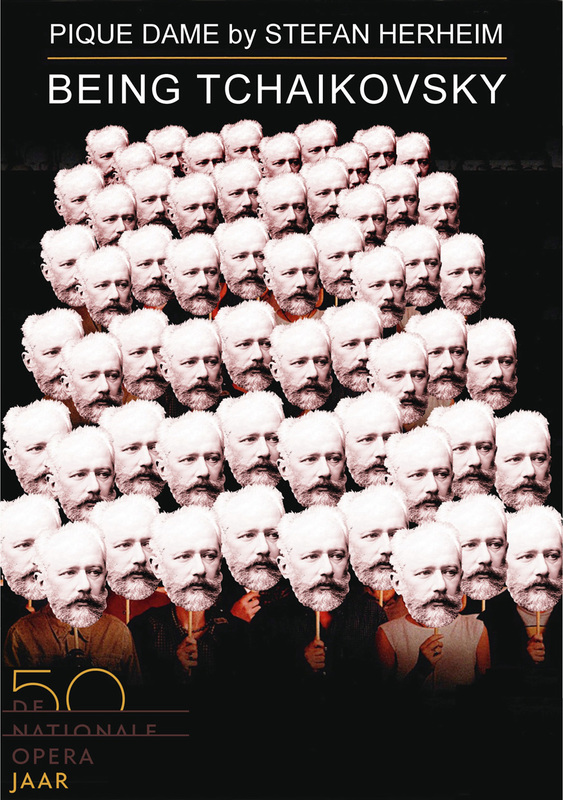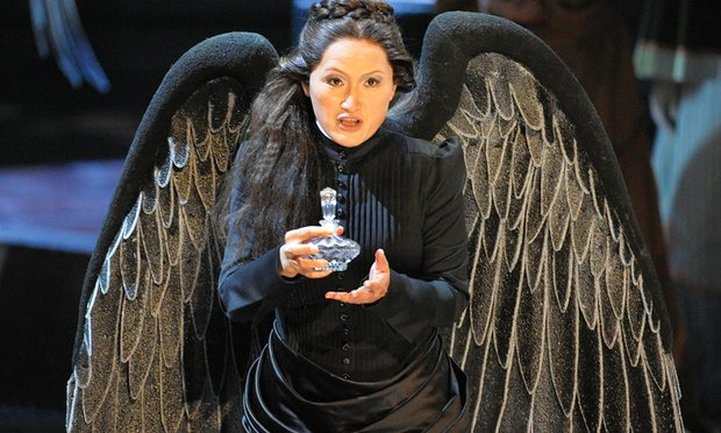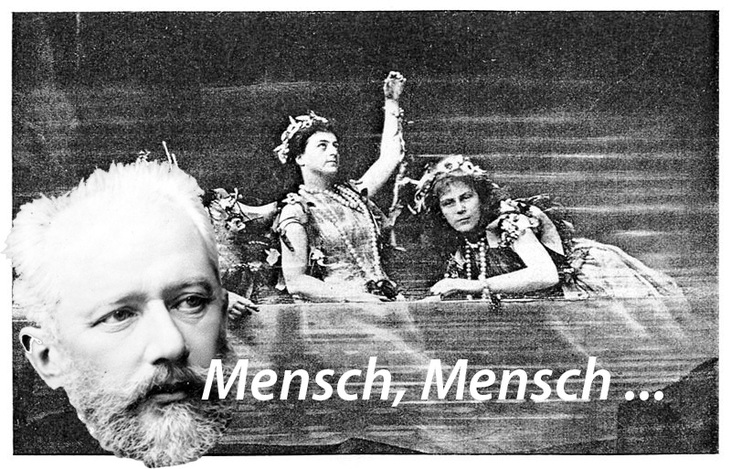|
There are a few things in life I regret. And not having downloaded Stefan Herheim’s Bayreuth production of Parsifal while it was still on YouTube is one of them. He is perhaps the best opera director of his generation, he was rewarded as such in 2006, 2007 and 2010 by Opernwelt. The word goes that his Parsifal was the most essential Bayreuth production since the Chéreau Ring and although I am not aware of all Wagner stagings since that centennial Ring I'm more than willing to take that word for being true. If they only would release the damn thing on DVD. If they only would release Herheim's Bayreuth Parsifal on DVD Right there in the same league as the late, great Patrice Chéreau. Stefan Herheim is a director who knows music (he studied cello) and someone who is very close to the material. He knows how opera and theater work. In a Herheim-production you see the art and skill that makes a good opera director (and you become aware that directing an opera is a craft of its own, good theater directors not automatically make good opera directors). More than once people who are hailed for their work in the theater fail when they come to direct and stage an opera. From the few people on this planet who knew that David Bowie was ill, Ivo van Hove was one of them so I don't want to take anything away from his creative achievements. But his staging of Franz Schreker's Die Schatzgräber for De Nationale Opera in 2012 was a notorious case of a famous theater maker pummeling the art of opera direction (you wondered if he even had heard the music). His inability to do libretto and Schreker's wonderful music justice resulted in a 'Park & Bark'-Personenregie and ugly scenery. None of that with Herheim. As with Chéreau his productions work on several levels. You witness spectacular action, wonderful scenery and characters that act with focus. In processing the source material he goes a whole lot further than Chéreau but the inner logic of his Personenregie is just as sound and the structure of his staging just as solid as they are with the Frenchman. I was given, almost last minute, the opportunity by a friend to attend the dress rehearsal of Tchaikovsky's Pique Dame. As a consequence I failed to inform myself about the production in advance (but it was a Herheim staging and that alone was enough to make me curious). Despite my ignorance it won me over on first seeing. Herheim starts the opera, before the overture sounds, with the prince and the protagonist Hermann caught in an act, sexual of nature. The prince is a Tchaikovsky-lookalike. After Herman leaves the room the Tchaikovsky lookalike drinks a cup of water with lethal consequences (the water is contaminated with cholera). We see a room full of Tchaikovskys and an angel with black wings (also to be seen in Herheim's Parsifal) coming out of the fireplace. A harrowing and horrifying image depicting death. There is alienation caused by Herheim's reworking of the source material. The personage of Tchaikovsky is pending between the characters of the opera. Telling us something about the different aspects of the composer's life and personality. His homosexuality that he had to hide from the public. But it's not the Brechtian kind of alienation. We are challenged to rethink whatever it is we already know about the opera and its composer. But the ratio behind that doesn't leave us emotionally detached. We are witnessing drama of flesh and blood, a hard boiled story with a heartbeat. Herheim's Pique Dame uses the libretto of the opera and the biography of its composer to serve us a dish of total theater that taste exceptionally well. The stage, a room build with panels that can be moved around in order to change the size and shape of the place and make it eventually into a labyrinth (illustrating the inner turmoil Hermann is in) is one of the cleverest I saw in an opera production so far. The scenery was not only there to supply beautiful images but was the result of Herheim's thoroughly rethinking of Modest (brother from) Tchaikovsky's libretto. As with Chéreau, Herheim's productions work on several levels. In this production Tchaikovsky is omnipresent. Literally. As many clones of the composer that fill the stage. As part of the choir, reflecting on what's going on, serving as a conscience for the characters. Sitting or standing behind a piano composing letters in which he reveals his inner feelings. Letters that are later on used as playing cards. It's a look at the composer and his work that Herheim gives us with this "Being Tchaikovsky"-production - one that leaves us with questions about sexuality and tolerance - that is, sadly, still relevant. We won't see this production and this kind of portrayal of Tchaikovsky in the Bolshoi Theater very soon. There are still (many) places where the things that had to be hidden in the 1890s must remain hidden in 2016. For me Pique Dame was an opera in which the staging won me over for the music. I have to admit that I'm not the biggest fan of the music of Tchaikovsky. For all his beautiful melodies, I miss the darkness and the drama from someone like his fellow countryman Mussorgsky. His music misses something of an edge I like to scratch my ears with. The music in Pique Dame touches, by times, on Mozart and posesses a Mediterranean kind of lightness and transparancy but Mariss Jansons and the Concertgebouworkest kept Pique Dame firm on solid romantic ground. In 1876 Tchaikovsky did attend the opening of Bayreuther Festspiele but he was no Wagner fan. He acknowledged the innovations the sorcerer of Bayreuth brought to the opera house and he didn't try to escape them. He was aware of the musical influence Wagner made on late nineteen century music dramas. But he couldn't identify with Wagner's mystical world. For his own drama he searched in the longings and sufferings of the individual in which he could recognize himself. People that could be found, for instance, in the stories of Alexander Pushkin. Like for his other opera Jevgeni Onegin he turned to Pushkin for Pique Dame. In Pique Dame, his last opera, he used Pushkin's story to let his own feelings overlap with the inner world of Hermann, the main character. This Pique Dame is an operafest impossible to resist. If only we didn't have to wait until 2020 to see Herheim's Ring in Berlin.
2 Comments
sandra
6/9/2016 10:06:25 pm
And we will! :)
Reply
Leave a Reply. |
TIMELINE
July 2024
|




 RSS Feed
RSS Feed